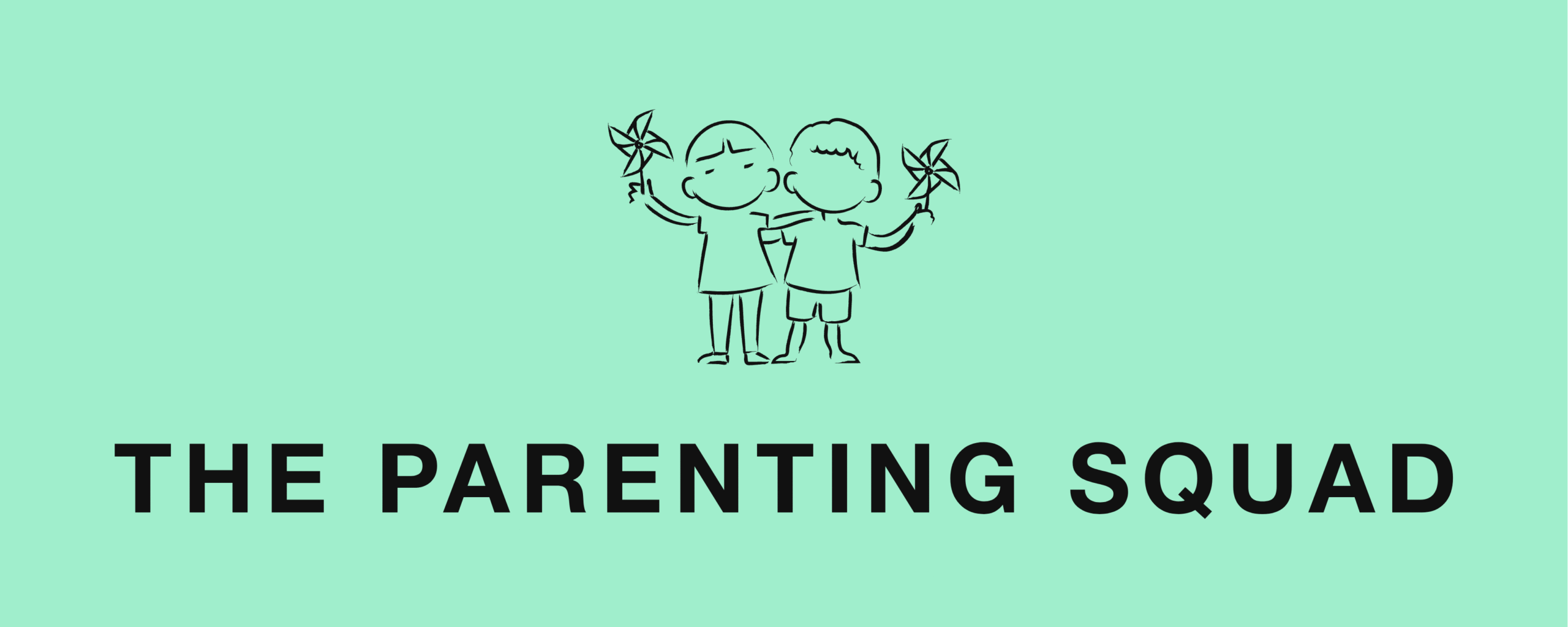Pregnancy is an incredible journey, but let’s be real—it can feel overwhelming trying to balance what’s “good” for you, what’s “safe,” and what’s doable when you’re exhausted by 2 PM and can barely look at broccoli without feeling queasy.
If you’ve ever found yourself spiraling down a Google rabbit hole at midnight, wondering if you’re doing everything “right,” you’re not alone. The good news? Creating a healthy pregnancy routine doesn’t require a complete lifestyle overhaul or a degree in nutrition. It’s about finding simple, sustainable habits—like healthy eating, gentle exercise, and self-care—that work for your real life—complete with morning sickness, busy schedules, and those days when getting dressed feels like an Olympic achievement.
This guide focuses on practical, easy-to-follow daily habits that support your physical and mental well-being during pregnancy. We’ll cover nourishing food choices, gentle movement, stress management, and yes—even how to make drinking water feel less like a chore. These aren’t lofty goals you’ll abandon by week two; they’re realistic strategies designed for pregnant women living actual lives. If you’re looking for actionable health tips to support you through pregnancy, you’re in the right place.
The Power of Small, Consistent Habits
Here’s the thing about pregnancy: you’re already doing the most incredible thing a human body can do—growing another human. You don’t need to add “perfect health guru” to your resume.
Small, consistent habits matter infinitely more than grand gestures during pregnancy. Think of it like compound interest for your health. That daily 10-minute walk might not feel revolutionary, but over nine months, it adds up to better circulation, improved mood, and increased energy. The handful of nuts you grab as a snack provides steady protein and healthy fats that support your baby’s brain development.
The beauty of focusing on small changes is that they’re sustainable. When you’re dealing with pregnancy fatigue, food aversions, and a growing belly that makes bending over feel like advanced yoga, you need habits that adapt with you, not against you.
Developing small, consistent habits can also help you cope with the emotional and physical challenges of pregnancy, making it easier to manage stress, fatigue, and changing feelings.
Remember: progress, not perfection. Some days you’ll nail every healthy habit, and other days you’ll eat cereal for dinner while lying on the couch. Both are entirely valid parts of the pregnancy experience.
Prenatal Care and Check-ups: Your Foundation for a Healthy Journey
Routine prenatal care is the cornerstone of a healthy pregnancy. These regular check-ups with your healthcare provider are about so much more than just stepping on a scale or having your blood pressure taken—they’re your opportunity to make sure you and your baby are thriving every step of the way.
At each visit, your provider will monitor your healthy weight gain, check for signs of high blood pressure, and watch for any health problems that could affect your pregnancy. These appointments are also the perfect time to discuss healthy food choices, safe physical activity, and any supplements you might need to support your baby’s development. Wondering how much weight you should gain, or what’s considered a healthy amount? Your provider can give personalized guidance based on your body and your baby’s needs.
Routine prenatal care also includes important screenings that help prevent birth defects and catch potential issues early, giving you peace of mind and the best chance for a smooth pregnancy. Don’t hesitate to raise any concerns or questions—no matter how small they seem. Whether you’re curious about new foods, worried about a symptom, or need reassurance, your prenatal visits are a safe space to get the answers you need.
By making prenatal care a regular part of your routine, you’re taking a powerful step toward a healthy pregnancy, supporting your baby’s growth, and setting yourself up for a positive experience from early pregnancy through delivery.
Eat Foods That Nourish You and Baby
Pregnancy nutrition doesn’t have to be complicated. While you’ve probably heard about folic acid, iron, and calcium a thousand times, let’s focus on what this looks like in your daily routine. Vitamins are also crucial to a balanced pregnancy diet, supporting your health and your baby’s development.
Start with balance rather than restriction. Your plate doesn’t need to look like a nutrition textbook illustration, but aim for a mix of protein, healthy fats, and colorful fruits and vegetables when possible. Think avocado toast with a sprinkle of hemp seeds, Greek yogurt topped with berries and a drizzle of honey, or a simple smoothie packed with spinach (you won’t even taste it, promise). Gaining a healthy weight during pregnancy is vital for both you and your baby, and recommendations for how much weight to gain can depend on your age, pre-pregnancy weight, and overall health.
Meal prep becomes your best friend during pregnancy, especially during those first-trimester survival weeks. Wash and chop vegetables when you feel up to it, so they’re ready when you’re not. Pre—portion nuts and seeds into small containers for quick protein hits. Make big batches of soups or stews that freeze well—you will be grateful when you’re exhausted.
Listen to your body’s cues, even when they seem weird. If plain crackers are all you can manage for a few days, that’s okay. If you’re suddenly craving oranges like they’re going out of style, your body might be telling you something about your vitamin C needs. Gaining weight is a normal and necessary part of pregnancy, so trust the process and don’t stress about the occasional nutritional imperfection.
Keep easy, nutrient-dense snacks within arm’s reach. Hard-boiled eggs, apple slices with almond butter, or a simple trail mix can bridge the gap between meals when pregnancy hunger strikes suddenly and intensely. And remember, certain foods can harm your baby and should be avoided to keep both of you safe.
Foods and Drinks to Avoid for a Safer Pregnancy
Making healthy food choices during pregnancy isn’t just about what you add to your plate—it’s also about knowing what to skip for your baby’s safety. Some foods and drinks can increase the risk of health problems or birth defects, so it’s essential to be mindful of what you eat and drink.
Pregnant women should avoid raw or undercooked meats, fish high in mercury (like shark, swordfish, and king mackerel), and unpasteurized dairy products, as these can carry harmful bacteria or toxins. It’s also wise to limit foods high in sugar, salt, and unhealthy fats, which can contribute to health problems for both you and your baby.
Drinking alcohol during pregnancy is linked to serious risks, including birth defects and developmental issues, so it’s safest to avoid alcohol entirely. The same goes for certain over-the-counter medicines and prescription drugs—always check with your healthcare provider before taking any new medicine, even if it seems harmless.
By steering clear of these risky foods, drinks, and medicines, you’re helping to protect your baby’s health and giving them the best possible start. If you’re unsure about a food or medicine, don’t hesitate to ask your doctor or midwife. Making informed choices now is one of the most potent ways to support a healthy pregnancy and baby.
Move Gently, but Keep Moving
Exercise during pregnancy isn’t about maintaining your pre-pregnancy fitness routine or proving anything to anyone. It’s about supporting your energy levels, keeping your muscles flexible, and helping your body adapt to all the incredible changes happening. Staying active during pregnancy can reduce health risks, improve mood, and support overall well-being.
Walking is probably the most underrated pregnancy exercise. It doesn’t require special equipment, can be done almost anywhere, and automatically adjusts to your energy level. Walking is a great way to remain physically active throughout pregnancy. Some days, you’ll power walk around the neighborhood; others, a gentle stroll to the mailbox counts as movement. Both are valuable.
Prenatal yoga offers fantastic benefits for flexibility, breathing, and stress relief. Many studios offer classes specifically designed for pregnant women, or you can find excellent online videos that adapt poses for each trimester. Even 10-15 minutes of gentle stretching can help with typical pregnancy discomforts like back pain and tight hips.
Swimming provides excellent full-body exercise with zero impact on your joints. The buoyancy of water can be incredibly relieving as your belly grows, and many women find it helps with swelling and discomfort. Swimming is also an excellent way to stay active with minimal impact on your body.
Moderate intensity aerobic activity, such as brisk walking or swimming, is recommended during pregnancy. You can identify moderate intensity using the ‘talk test’—you should be able to talk, but not sing, while exercising.
Here’s some pregnancy real talk: there will be days when walking to the kitchen feels like a marathon. That’s completely normal. Listen to your body, rest when needed, and remember that growing a human is already quite the workout.
Hydration is Non-Negotiable
Staying hydrated during pregnancy isn’t just a nice-to-have—it’s essential for preventing headaches, reducing swelling, supporting increased blood volume, and helping with digestion. Plus, proper hydration can boost your energy levels naturally.
The challenge? Plain water can feel incredibly boring when you’re already dealing with pregnancy symptoms. Jazz it up with sliced cucumbers, berries, or mint leaves. Herbal teas (pregnancy-safe varieties like ginger or chamomile) also count toward your fluid intake.
Invest in a water bottle that makes you happy to use. Whether it’s a pretty glass bottle, an insulated tumbler that keeps drinks perfectly cold, or one with measurement markers that gamify your daily intake—whatever motivates you to drink more is worth it.
Yes, increased water intake means more bathroom trips, but consider it built-in movement breaks throughout your day. Your kidneys, circulation, and baby will thank you for prioritizing hydration.
Set gentle reminders on your phone or pair water drinking with existing habits. Drink a glass of water when you wake up, refill after each bathroom break, or drink while checking emails. Making it routine removes the mental load of remembering.
Prioritize Rest and Quality Sleep
Sleep during pregnancy can be frustratingly elusive, especially as your belly grows and finding a comfortable position becomes a puzzle. However, prioritizing rest—even when perfect sleep feels impossible—is crucial for your physical and mental well-being.
Invest in a good pregnancy pillow or create your support system with regular pillows. Many women find relief with one pillow between their knees and another supporting their belly. Experiment until you find what works for your changing body.
Create a calming bedtime routine that signals to your body it’s time to wind down. This might include a warm bath, gentle stretching, reading, or practicing deep breathing exercises. Consistency helps train your body to prepare for sleep.
Afternoon naps aren’t lazy during pregnancy—they’re productive. Managing a 20-30 minute rest during the day can significantly improve your overall energy levels and mood.
Proactively address common sleep disruptors. Keep antacids nearby for heartburn, use a small pillow to elevate your upper body if needed, and don’t hesitate to get up and move around if leg cramps strike.
Remember that rest doesn’t always mean sleep. Sometimes lying down with your feet elevated while reading or listening to music provides the restoration your body needs.
Manage Stress with Simple Mindfulness
Pregnancy naturally comes with worries, excitement, physical discomfort, and many emotions. It can also be a stressful time, both emotionally and physically, as you navigate these changes. Having tools to manage stress isn’t about achieving perfect zen—it’s about building resilience for the journey ahead.
Deep breathing exercises are straightforward yet effective. Try the 4-7-8 technique: inhale for four counts, hold for seven, and exhale for eight. Even a few rounds can activate your body’s relaxation response and provide immediate calm.
Journaling offers a private space to process your thoughts and feelings about pregnancy, parenthood, and all the changes ahead. Don’t worry about perfect prose—just let your thoughts flow onto paper.
Find small moments of joy and mindfulness throughout your day. Savoring your morning tea, taking three deep breaths before getting out of bed, or simply noticing five things you can see, hear, and feel around you can anchor you in the present moment.
Consider prenatal meditation apps or classes designed specifically for expecting mothers. These resources address pregnancy worries and guide practices that grow with you through each trimester.
Remember that asking for help—whether from your partner, family, friends, or healthcare providers—is also a form of stress management. You don’t have to navigate pregnancy solo.
Building Your Personal Pregnancy Wellness Routine
These healthy pregnancy habits work best when woven into a routine that feels sustainable and supportive rather than overwhelming. Think of them as a gentle framework for your days, not a rigid checklist demanding perfection.
Start small and build gradually. Maybe this week you can focus on carrying a water bottle everywhere. Next week, you will add a 10-minute evening walk. The following week, you experiment with one new healthy snack. Maintaining a healthy weight during and after pregnancy can help reduce the risk of becoming overweight and related health issues, such as diabetes and heart disease. This approach prevents the all-or-nothing mentality that often leads to giving up entirely.
Remember that your needs will change throughout pregnancy. First-trimester fatigue might make gentle movement your priority, while third-trimester discomfort might shift your focus to rest and stress management. Stay flexible and adjust your habits as your body and circumstances change.
Most importantly, be kind to yourself. Some days you’ll feel like a pregnancy wellness champion and others you’ll eat cookies for breakfast and skip your walk. Both experiences are part of the beautifully imperfect reality of growing a human.
Ready to start building healthier pregnancy habits that stick? Choose one small change to focus on this week—maybe that fancy water bottle or a five-minute evening stretch routine. Your future self (and your baby) will appreciate every small step you take toward feeling your best during this incredible journey, and these habits can benefit both mothers and their babies.
Want personalized support and tips explicitly tailored to your pregnancy stage? Join our community of parents who understand exactly what you’re going through. Sign up for exclusive resources, expert advice, and the encouragement from knowing you’re not alone in navigating this amazing, challenging, beautiful experience. Ongoing support for women’s health during and after pregnancy is essential for long-term well-being.
Breastfeeding and Bonding: Preparing for Connection
Breastfeeding is more than just a way to feed your baby—it’s a powerful opportunity to bond and support your baby’s growth with the perfect blend of nutrients. Exclusive breastfeeding for the first six months is recommended, and breastfeeding until at least 12 months can offer ongoing benefits for you and your baby.
Breastfeeding can help your baby grow strong and healthy while supporting your health by reducing the risk of diabetes, obesity, and even helping with weight loss after pregnancy. It’s normal to have questions or concerns about breastfeeding, such as worries about low milk supply, nipple pain, or how to manage emotional ups and downs. Talking to your healthcare provider or a lactation consultant can help you prepare and address any challenges.
Consider taking a breastfeeding class or connecting with other moms for support and advice. Remember, every breastfeeding journey is unique—what matters most is finding what works for you and your baby. By preparing ahead and seeking help when needed, you can make breastfeeding a positive, nurturing experience that benefits your physical and emotional health.
Health Care and Support: Building Your Village
A healthy pregnancy isn’t just about what you eat or how much you exercise—it’s also about the support you have around you. Building your village means surrounding yourself with people who care, whether your healthcare provider, family members, friends, or other pregnant women who understand what you’re going through.
Don’t be afraid to lean on your support system for help with daily tasks, emotional encouragement, or just a listening ear when you need to talk. Joining a pregnancy support group or online community can connect you with other women who share your experiences and can offer tips, reassurance, and friendship.
Remember, it’s normal to have concerns or feel overwhelmed sometimes. Prioritizing your emotional health is as important as taking care of your body. If you ever feel unsure or need advice, reach out to your healthcare provider—they’re there to support you every step of the way.
With the proper care and a strong support network, you can confidently navigate pregnancy’s challenges, knowing you’re not alone. Asking for help is a sign of strength, not weakness, and it’s one of the best things you can do for your health and your baby’s well-being.






